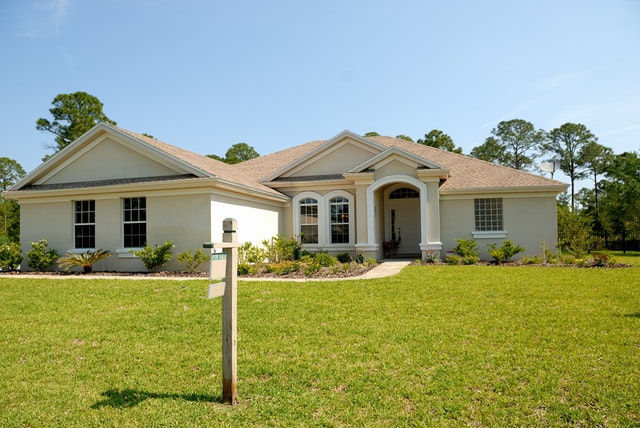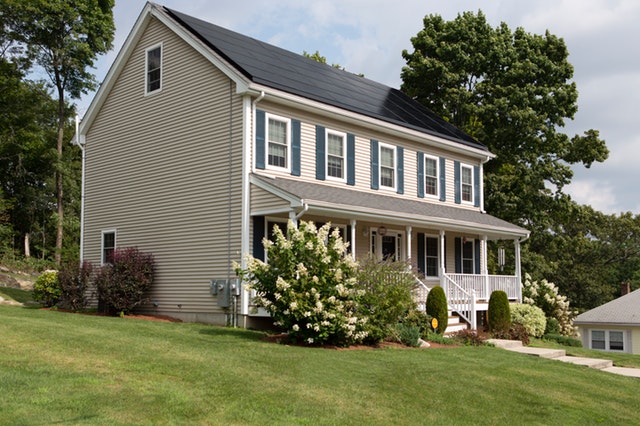 Aside from owning a business, owning rental property has been one of the top investment choices for people, most commonly done through buying a second home. Handled right, income properties can generate significant gains for investors, both in terms of real estate appreciation as well as monthly income from tenants. However, it’s not sure a surefire approach to financial success. There are a lot of ways that a budding real estate investor can go sideways with an investment property home purchase as well.
Aside from owning a business, owning rental property has been one of the top investment choices for people, most commonly done through buying a second home. Handled right, income properties can generate significant gains for investors, both in terms of real estate appreciation as well as monthly income from tenants. However, it’s not sure a surefire approach to financial success. There are a lot of ways that a budding real estate investor can go sideways with an investment property home purchase as well.
Watch Out for the Seller-Renter
Many times people will sell a home but then offer to rent it from the buyer, essentially trading their home title for ready cash but not really moving out. These situations come up a lot where someone wants to stay where they are but doesn’t want to deal with a mortgage anymore and would rather rent. They are also frequently listed as buyer-direct home sales versus using a traditional route through a real estate agent and broker. The big risk here is that the seller is able to unload the home on the buyer, and then stop paying the rent a few months in. The deal allows them to avoid foreclosure but then it becomes the landlord’s problem to actually evict. By the time the legalities are done and eviction is finally achieved, many landlords have taken a loss on the property and end up selling again. It’s better to have a clean sale with no further obligation between the parties and start with brand-new renters altogether.
Have a Good Strategy Ahead of Time
There are different ways to make a net profit from a rental property. Depending on the cost of financing, down payment and expectations of holding a residential property the driver for profit can be different. Some expect to make a gain both from rental income as well as equity growth. Some realize with the cost of financing, the better plan is to use rental income to pay for the mortgage as much as possible and make the net gain on the property equity appreciation over time. How long a property will be held can come into play as well. Knowing going in what one’s strategy is can help avoid mistakes once a commitment has been made or being surprised if the market has a downturn etc.
Tax Benefits are Different
An income property doesn’t get the tax same deduction benefits of a first home. The mortgage interest deduction, one of the biggest tax benefits possible for an individual is not possible with a rental income property. However, if you are operating your rental property purchased as a business, many of the expenses of running that business can be deducted through the Schedule C form process with an income tax return. Check with a tax advisor or attorney to be sure for your specific situation and interests.
Owner Responsibilities
Just because you rent the property doesn’t mean you’re off the hook. As a new buyer and owner, you’re still responsible for the property taxes due, HOA assessments, utilities and other costs tied to the property. Unless you contractually make the renter responsible, the tax, HOA and utilities will address the property in your name as the owner. Some forget this fact and get a nasty surprise in the mail with a tax or assessment lien on their property.
In short, buying a second home as an income property has the potential for significant investment gain, but it doesn’t operate on auto-drive. You need to still be involved quite a bit and watch whom you rent to when protecting your property interest.
 It is important for everyone to take steps to diversify their assets. While many people take this to mean holding multiple stocks, bonds, and mutual funds in the market, this also includes branching out into the real estate industry. The real estate industry is far more stable than the stock market and provides a fantastic opportunity to generate reliable returns. At the same time, there are lots of options to choose from when it comes to investment properties.
It is important for everyone to take steps to diversify their assets. While many people take this to mean holding multiple stocks, bonds, and mutual funds in the market, this also includes branching out into the real estate industry. The real estate industry is far more stable than the stock market and provides a fantastic opportunity to generate reliable returns. At the same time, there are lots of options to choose from when it comes to investment properties. Real estate investing is not only a great way to diversify assets but can also be used to generate both income and capital appreciation. While this is a fantastic opportunity, it is also important to choose investment projects carefully. It is critical to ask the right questions before making an offer on an investment property.
Real estate investing is not only a great way to diversify assets but can also be used to generate both income and capital appreciation. While this is a fantastic opportunity, it is also important to choose investment projects carefully. It is critical to ask the right questions before making an offer on an investment property. Investing in real estate is a great way for someone to diversify his or her assets; however, there is a common hurdle that almost all real estate investors face. This comes in the form of a down payment.
Investing in real estate is a great way for someone to diversify his or her assets; however, there is a common hurdle that almost all real estate investors face. This comes in the form of a down payment.  It is important for everyone to diversify their investments and one of the assets that people often look toward is real estate. In a healthy market, real estate should appreciate in value.
It is important for everyone to diversify their investments and one of the assets that people often look toward is real estate. In a healthy market, real estate should appreciate in value. Real estate investors who want to build up a strong investment portfolio always keep an eye out for hot markets, which gives them a chance to pick up properties that add to their portfolio value.
Real estate investors who want to build up a strong investment portfolio always keep an eye out for hot markets, which gives them a chance to pick up properties that add to their portfolio value.